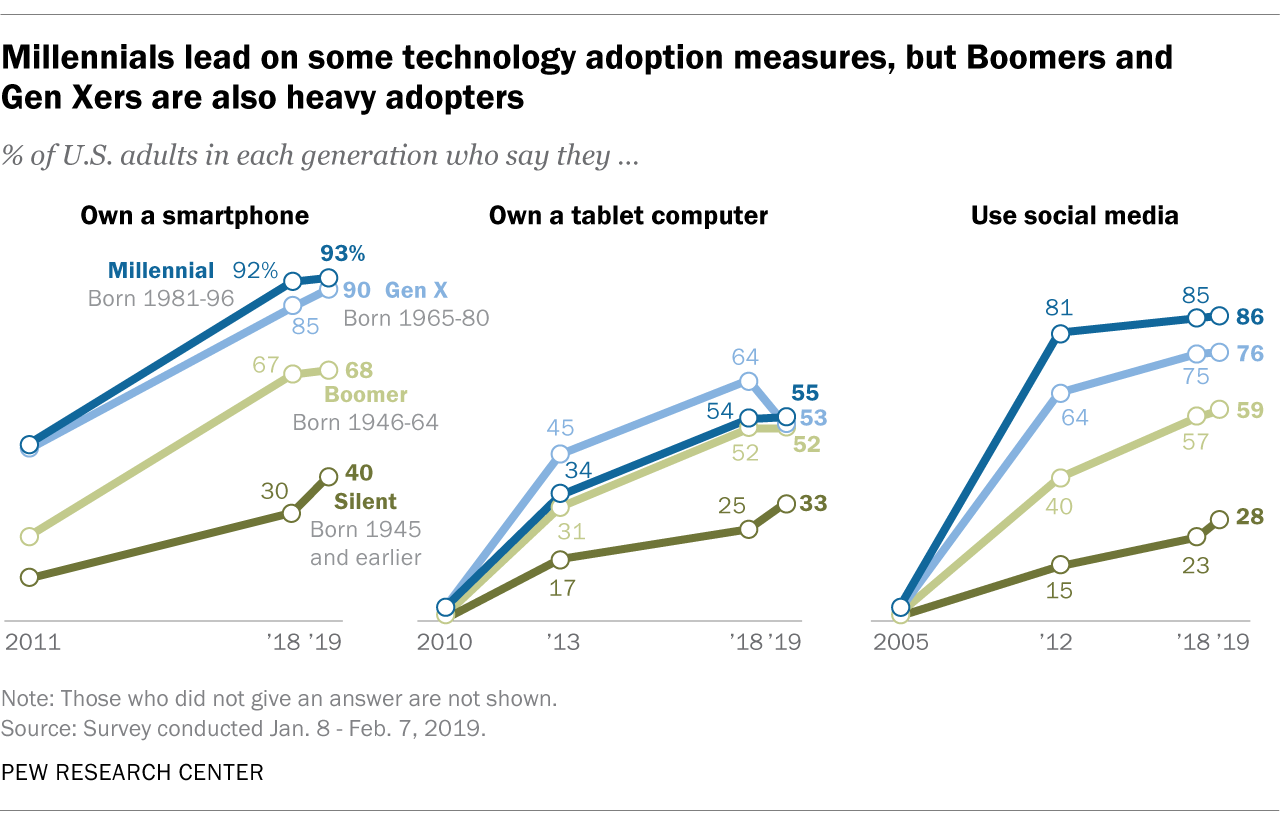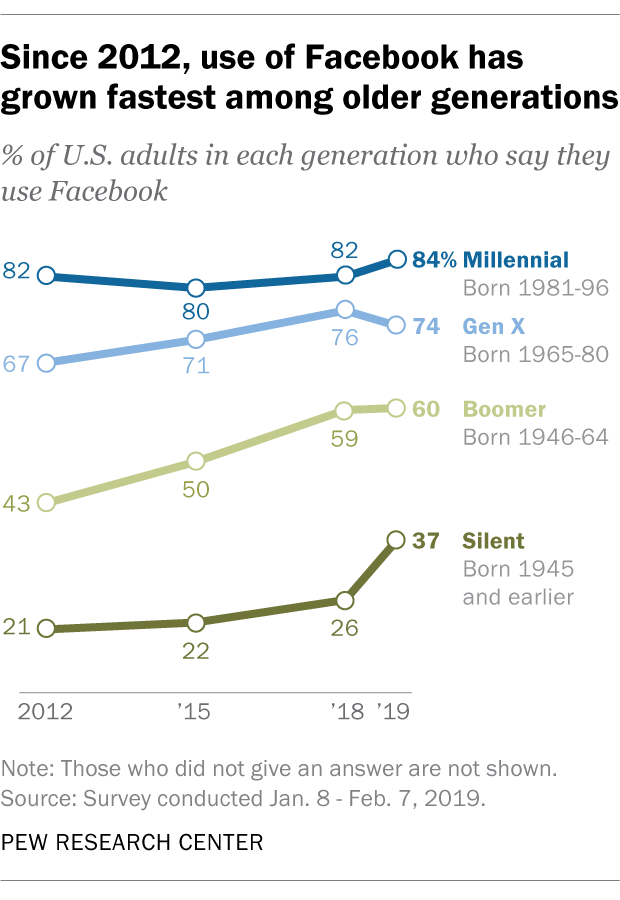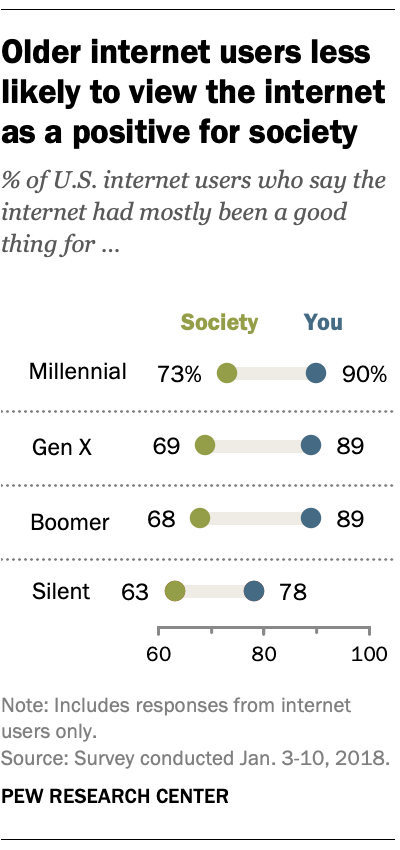Millennials stand out for their technology use, but older generations also embrace digital life
Millennials have often led older Americans in their adoption and use of technology, and this largely holds true today. But there has been significant growth in tech adoption since 2012 among older generations – particularly Gen Xers and Baby Boomers.
More than nine-in-ten Millennials (93% of those who turn ages 23 to 38 this year) own smartphones, compared with 90% of Gen Xers (those ages 39 to 54 this year), 68% of Baby Boomers (ages 55 to 73) and 40% of the Silent Generation (74 to 91), according to a new analysis of a Pew Research Center survey of U.S. adults conducted in early 2019.
 Similarly, the vast majority of Millennials (86%) say they use social media, compared with smaller shares among older generations. While the share of Millennials who say they use social media has remained largely unchanged since 2012, the shares of Gen Xers, Boomers and Silents who use social media all have increased by at least 10 percentage points during this period.
Similarly, the vast majority of Millennials (86%) say they use social media, compared with smaller shares among older generations. While the share of Millennials who say they use social media has remained largely unchanged since 2012, the shares of Gen Xers, Boomers and Silents who use social media all have increased by at least 10 percentage points during this period.
Unlike with smartphones and social media, tablet ownership is now comparable across most generations. Today, 55% of Gen Xers, 53% of Millennials and 52% of Boomers say they own tablets. A smaller share of Silents (33%) report owning tablets.
Those in the Silent Generation also lag when it comes to having broadband service at home. Whereas most Millennials (78%), Gen Xers (78%) and Boomers (74%) say they subscribe to home broadband, fewer than half of Silents (45%) say this.

Almost all Millennials (nearly 100%) now say they use the internet, and 19% of them are smartphone-only internet users – that is, they own a smartphone but do not have broadband internet service at home. Large shares of Gen Xers (91%) and Boomers (85%) use the internet, compared with just 62% of Silents. When it comes to smartphone-only internet users, 17% of Gen Xers go online primarily via a smartphone, as do 11% of Boomers and 15% of Silents.
Baby Boomers continue to trail both Gen Xers and Millennials on most measures of technology adoption, but adoption rates for this group have been growing rapidly in recent years. For example, Boomers are now far more likely to own a smartphone than they were in 2011 (68% now vs. 25% then).
Although Boomers have been adopting a range of technologies in recent years, members of the Silent Generation are less likely to have done so. Four-in-ten Silents (40%) report owning a smartphone, and fewer (33%) indicate that they have a tablet computer or use social media (28%). Previous Pew Research Center surveys have found that the oldest adults face some unique barriers to adopting new technologies – from a lack of confidence in using new technologies to physical challenges manipulating various devices.

While generations differ in their use of various technologies, a 2018 Center survey found that younger internet users also were more likely than older Americans who use the internet to say the internet has had a positive impact on society: 73% of online Millennials said the internet has been mostly a good thing for society, compared with 63% of users in the Silent Generation.
Americans were also less positive about the societal impact of the internet last year than four years earlier. Gen Xers’ views of the internet’s impact on society declined the most in that time. In 2014, 80% of Gen X internet users believed the internet had been mostly a positive thing for society, a number that dropped to 69% in 2018. Millennial and Silent internet users were also somewhat less optimistic last year than in 2014.
Note: This is an update of a post originally published May 2, 2018, and written by Jingjing Jiang, a former research analyst focusing on internet and technology. See full topline results and methodology here.
Emily A. Vogels is a research associate focusing on internet and technology at Pew Research Center. POSTS BIO EMAIL






